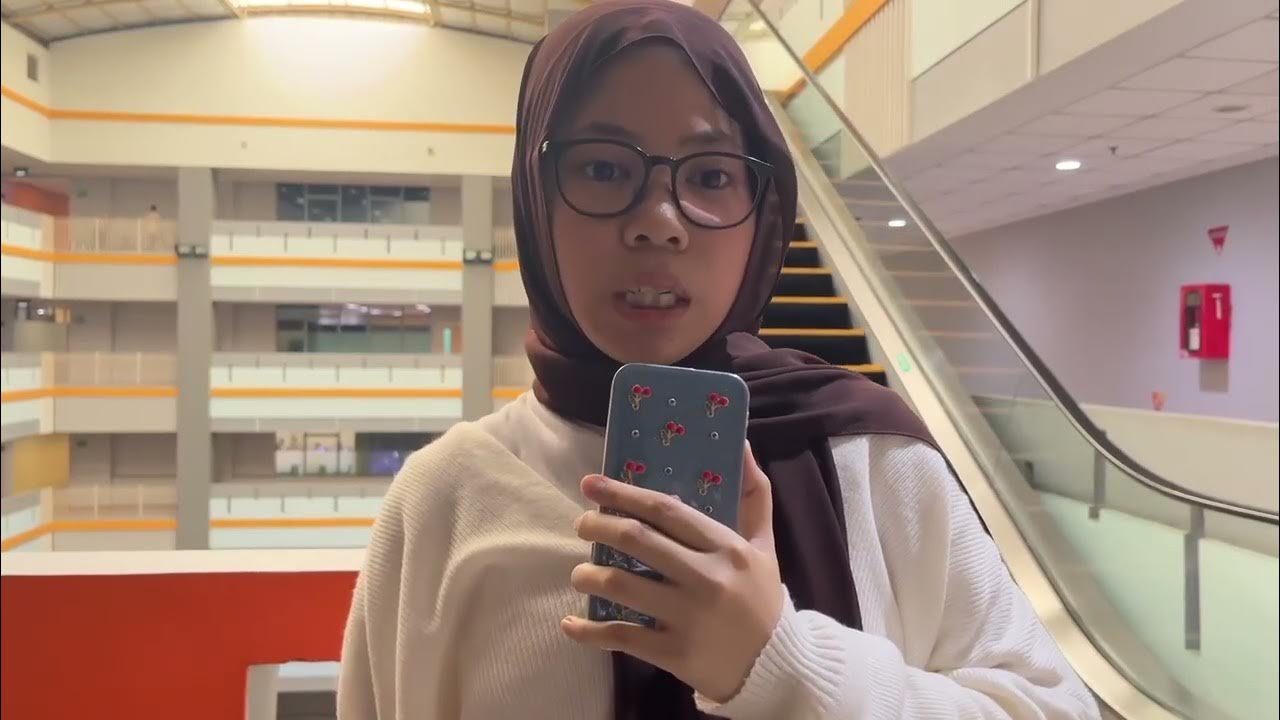Perang Melawan Sampah Plastik di Lautan Indonesia
Summary
TLDRThe speaker highlights Indonesia's position as the second-largest contributor of plastic waste to the ocean and emphasizes the urgency of change, especially for the younger generation. They stress the need for awareness and education about plastic pollution, pointing out the potential harm to coral reefs, with plastic exposure increasing disease risk by 89%. The speaker advocates for shifting attitudes toward plastic waste and urges individuals to avoid automatically using plastic bags. They also call for pressure on industries that produce plastic, urging action to protect the environment and reduce plastic waste.
Takeaways
- 😀 Indonesia is the second largest contributor of plastic waste to the ocean.
- 😀 We should feel ashamed and stop contributing to plastic pollution.
- 😀 As the youngest generation, we have to take responsibility for protecting the environment.
- 😀 The damage to coral reefs caused by plastic waste can lead to up to 89% of reefs being affected by diseases.
- 😀 Only 4% of coral reefs are impacted when they are not exposed to plastic pollution.
- 😀 It's important to educate people in Indonesia that plastic is considered waste, and not something harmless like leaves.
- 😀 The problem is not just about individuals, but the industries that produce plastic.
- 😀 Pressuring the industries that produce plastic could be key to reducing plastic waste.
- 😀 There is still a lot of work to be done in addressing plastic pollution, especially through education.
- 😀 Changing people's mindset is crucial, such as remembering to bring their own reusable bags instead of using plastic ones.
Q & A
What is the current issue with plastic waste in Indonesia?
-Indonesia is currently the second-largest contributor of plastic waste to the ocean.
How is plastic pollution affecting coral reefs?
-Coral reefs exposed to plastic waste are 89% more likely to be affected by diseases, compared to only 4% of coral reefs not exposed to plastic pollution.
What is the importance of raising awareness about plastic waste in Indonesia?
-Raising awareness is crucial to make people realize that plastic is a form of waste. Many people mistakenly believe that plastic is not waste, and awareness is the first step toward addressing the issue.
What is one key obstacle in reducing plastic waste in Indonesia?
-A major challenge is that many people still do not recognize plastic as waste. Additionally, the plastic industry plays a significant role in the ongoing problem.
How can reducing plastic waste be achieved in Indonesia?
-One way to reduce plastic waste is by pressuring the industries that produce plastic. This includes promoting sustainable alternatives and encouraging industries to adopt environmentally friendly practices.
What role does education play in addressing plastic waste?
-Education is essential to changing people's mindset about plastic usage. People need to be taught to avoid automatically using plastic bags and to bring their own reusable bags instead.
Why is it important to act quickly in addressing plastic waste?
-Since the problem of plastic waste is happening during our lifetime, it is urgent that we act now, as the impacts will be felt in the future, even by the younger generations.
What is the perspective of younger generations on the issue of plastic pollution?
-Young people recognize that time is running out to address plastic pollution, and they understand the long-term consequences it could have on the environment and future generations.
How does the perception of plastic waste differ in Indonesia?
-In Indonesia, some people still do not consider plastic as waste. They may think of leaves or other natural materials as waste, which reflects a cultural misconception that needs to be changed.
What personal actions can individuals take to reduce plastic waste?
-Individuals can take simple actions like remembering to bring their own reusable bags when shopping, rather than automatically accepting plastic bags, to reduce their personal plastic footprint.
Outlines

This section is available to paid users only. Please upgrade to access this part.
Upgrade NowMindmap

This section is available to paid users only. Please upgrade to access this part.
Upgrade NowKeywords

This section is available to paid users only. Please upgrade to access this part.
Upgrade NowHighlights

This section is available to paid users only. Please upgrade to access this part.
Upgrade NowTranscripts

This section is available to paid users only. Please upgrade to access this part.
Upgrade NowBrowse More Related Video
5.0 / 5 (0 votes)





